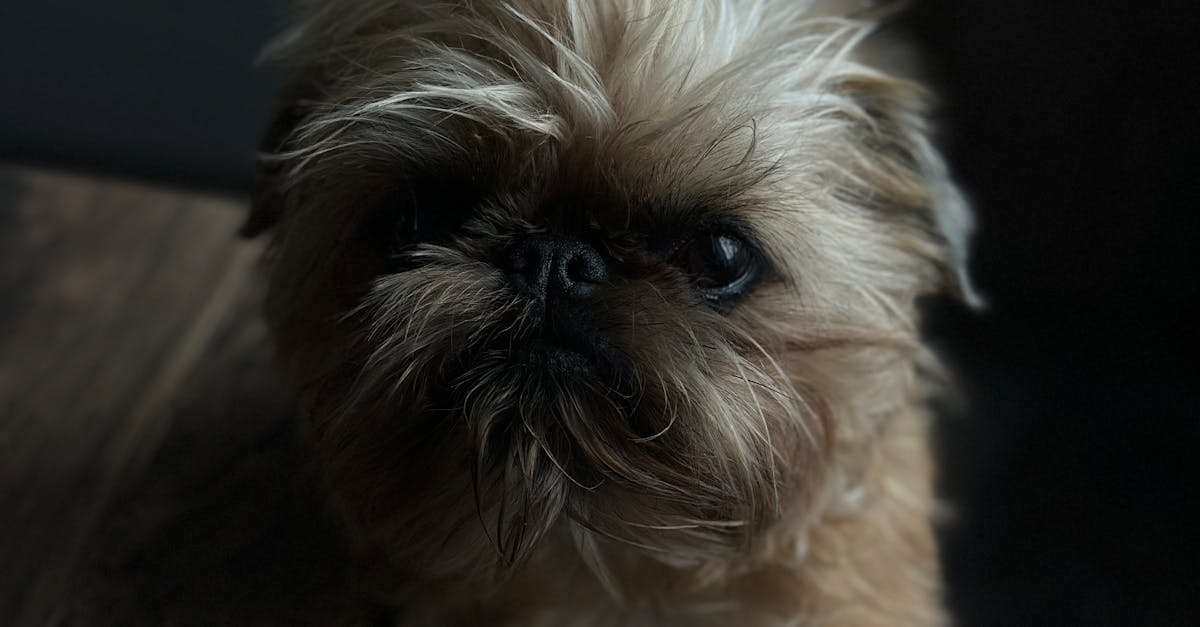The Brussels Griffon, often affectionately called the “Griff,” is a small dog with a big personality. Known for their expressive faces and charming antics, this breed has captured the hearts of dog lovers worldwide. But is the Brussels Griffon the right dog for you? Let’s dive into their unique characteristics, care needs, and everything you should know about this delightful breed.
🐾 What Does a Brussels Griffon Look Like?
The Brussels Griffon is a toy breed that stands out thanks to its distinctive appearance. Their compact size, expressive eyes, and almost human-like face make them easily recognizable. These small but sturdy dogs typically weigh between 8–12 pounds and stand about 7–10 inches tall at the shoulder.
Brussels Griffons come in two coat types:
- Rough coat – A wiry, dense texture that gives the Griff a scruffy look
- Smooth coat – Soft and shiny, resembling the fur of a Pug
Their coat colors can vary, with common shades including red, black, black and tan, or belge (a mix of black and reddish-brown). This breed’s unique facial expression often earns comparisons to a monkey or even a grumpy old man, adding to their charm!
🧠 Personality Traits of the Brussels Griffon
Don’t let their small size fool you—Brussels Griffons are full of personality. These dogs are known for being:
- Affectionate – They love to cuddle and bond closely with their owners
- Intelligent – Quick learners who enjoy mental stimulation
- Playful – Always ready for a game or some fun
- Alert – Excellent watchdogs with keen senses
Griffs thrive on human companionship and can become very attached to their families. However, this strong bond can sometimes lead to separation anxiety if left alone for long periods. They are best suited for households where someone is home most of the day.
🏡 Care Requirements for Brussels Griffons
Exercise Needs
Despite their small size, Brussels Griffons have moderate energy levels and enjoy daily walks or playtime. They don’t need intense exercise but benefit from activities that keep them physically and mentally engaged. A 20–30 minute walk combined with interactive toys at home is usually enough to keep them happy.
Grooming
The grooming needs of a Brussels Griffon depend on their coat type:
- Rough-coated Griffs require regular brushing to prevent matting and occasional hand-stripping to maintain their coat texture
- Smooth-coated Griffs need weekly brushing to minimize shedding and keep their coat shiny
Both coat types benefit from routine nail trims, ear cleaning, and dental care to maintain overall health. Like most small breeds, Griffs are prone to dental issues, so brushing their teeth daily is highly recommended.
Diet
Brussels Griffons should be fed a high-quality, balanced diet suitable for their age, size, and activity level. Portion control is crucial to prevent obesity, as these small dogs can gain weight quickly. Consult your veterinarian to determine the best diet and feeding schedule for your Griff.
🐕 Health Concerns in Brussels Griffons
While generally healthy, Brussels Griffons are predisposed to certain genetic health issues. Common conditions include:
- Brachycephalic airway syndrome – Breathing difficulties due to their flat faces
- Luxating patella – A condition where the kneecap slips out of place
- Syringomyelia – A neurological disorder affecting the spinal cord
- Dental problems – Small mouths make them prone to overcrowded or misaligned teeth
Regular vet check-ups, a healthy diet, and proper exercise can help mitigate these risks. Additionally, adopting from a reputable breeder who conducts health screenings can reduce the likelihood of inherited conditions.
👩🏫 Training and Socialization Tips
Brussels Griffons are intelligent and eager to please, making them relatively easy to train. However, their sensitive nature means they respond best to positive reinforcement methods, such as treats, praise, and play. Harsh training techniques can cause them to become shy or fearful.
Early socialization is crucial to ensure your Griff grows into a confident and well-behaved adult. Expose them to various people, pets, and environments from a young age to help them adapt to different situations. Puppy training classes can also be a great way to build their confidence and strengthen your bond.
🏠 Is a Brussels Griffon Right for You?
Brussels Griffons are ideal for individuals or families looking for a small, affectionate companion. They thrive in homes where they can receive plenty of attention and aren’t left alone for extended periods. Their low exercise needs and compact size also make them well-suited for apartment living.
However, potential owners should be prepared for their grooming requirements, potential health issues, and the possibility of separation anxiety. If you’re willing to invest time and love into this breed, the Griff will reward you with endless affection and loyalty.
FAQs
Q: Are Brussels Griffons good with children?
A: While they can get along with older, respectful children, Griffs may not tolerate rough handling from younger kids. Always supervise interactions to ensure safety for both the dog and the child.
Q: Do Brussels Griffons bark a lot?
A: Griffs can be vocal, especially if they sense something unusual. Proper training can help manage excessive barking.
Q: How long do Brussels Griffons live?
A: With proper care, a Brussels Griffon can live 12–15 years.
Q: Are Brussels Griffons hypoallergenic?
A: While no dog is completely hypoallergenic, the rough-coated Griff sheds minimally and may be suitable for allergy sufferers.
References
- American Kennel Club – Brussels Griffon Breed Information
- VCA Animal Hospitals – Brussels Griffon Overview
- PetMD – Brussels Griffon Breed Guide
- ASPCA – General Dog Care
Book a $49 online vet consultation at https://www.dialavet.com for fast, expert advice.























